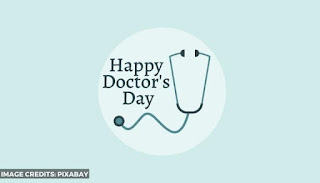Common sense or Conman sense
Some
of us have used both basis convenience or have been the subject of receiving
both. It seems to me that the fine art of using common sense or conman sense
has been under constant refinement by one and all – imagine the extent of our
obsession with such a refinement. The ease, with which we switch from the
shades of white to grey and back of course, seems to be so natural to some of
us that it almost feels to be a virtuoso. In some manner, I have started to
think if these are two sides of the coin – of course probability rules in our
manifestation of the role of senses, but then are we akin to a coin, branded on
either side with the categorization of senses for public display?
So
what makes us cultivate these senses and or our ability to switch roles between
the two? I feel the seeds of conman sense are sowed, nurtured and taught to be
reaped almost simultaneously to the common sense. But then somewhere along, one
of the senses seems to overtake, outclass and outshine the other in us and we
seem to possess that as an inherent trait of our personality without even
realizing it. As a society we have come to acknowledge the presence of both,
denial of conman sense when it comes to us and stamp of approval on conman
sense for others. The prevalence of the two senses is now so widespread that
even a seemingly innocuous brief conversation with a stranger is being filtered
through the lenses of conman sense.
To
some extent, I feel the way we are taught, formally and informally, and our
‘chalta hai attitude’ has fuelled the growth of the two senses. Since the
probability of meeting some repeat customers is remote, let’s use the conman
sense to get the task done. And of course, even if it’s a regular customer, a
pinch of salt in a dump of flour would hardly be noticed. Whosoever said that
the means are as important as the end was actually right - pick the one which
suits you, helps you get the task done and move on without an iota of remorse /
guilt.
In all fairness, I feel most
of us must have vacillated between the two senses at some point of time and
used both senses – temptations are natural. I know of people who have risen in
their professional and personal lives using more of common sense and have also
been witness to the rise of those who use more of conman sense. But one thing
is for sure – your reputation precedes your physical being. Customers, deciding
on meeting people basis there reputation and still worse, out rightly rejecting
meeting some, are slowly gaining ground. They do reference checks on suppliers
and are increasingly interacting with the sales fraternity through the lenses
of caution – I feel we are still some distance away from ‘suspicion’. Just
imagine – meeting a customer and trying to sell him a solution while first
clearing the air of suspicion. Seems much like a courtroom drama – I am clean
and I do clean transactions.
Much like the evolutionary
process of humans, I think it’s time we cultivate our ability to spot the
difference between the uses of the two senses to take the right decisions. It’s
one thing to possess the ability to execute the two senses basis convenience and
another being able to spot them.
By
Sumit Singh
Dated : 14 Oct’12

Hi. Your article is an eye opener and had got me reflecting about the so-called hype on 'branding'. First, your entrepreneur friend should turn the tables on himself. If he loves what he is doing and believes in his business,he would have no 'insecurities' about his enterprise. If he is 'happy' with his business, it will reflect on how he relates with his customers and vice-versa. I don't know, but I think it is important that we know the 'pulse' and preferences of our customers because in TQM, the customers define standards of quality. Whether you are a for-profit or non-profit organization, the ultimate gauge of your success is how happy and content you made your customers or clients.
ReplyDeleteBrand identity starts with your dream or ideal, how you want things to be (usually your vision)and your staunch determination to be the best 'brand' you can be. As you say,it is something emotional and personal. Brand image is what you project to the 'public'- your stakeholders. It is important that there is synchronization between your brand identity and brand image, otherwise, the sensitive public will easily label you as 'fake'and will not even touch you with a ten-foot pole.
The 'mirror' analogy is fine but two-way mirror can work wonders because it creates a continuous convergence among elements of perceptions, feelings, reflections, insights and reality between the service-provider and the people being served.
Good luck to your friend and to you too.
October 22, 2012 12:03 AM
Hi Rose,
DeleteThanks for your insightful comments and time spent on reading my post. They present yet another perspective to what I have written - and certainly an interesting one.
Will view some situations from this glass too.
Cheers,